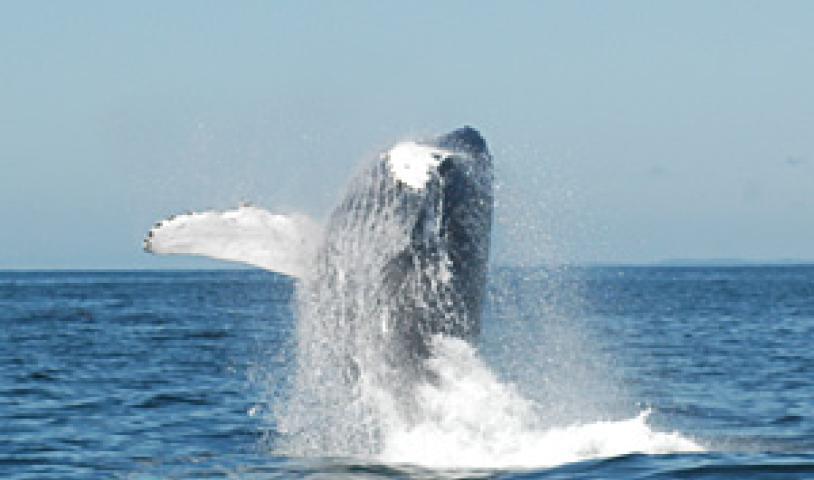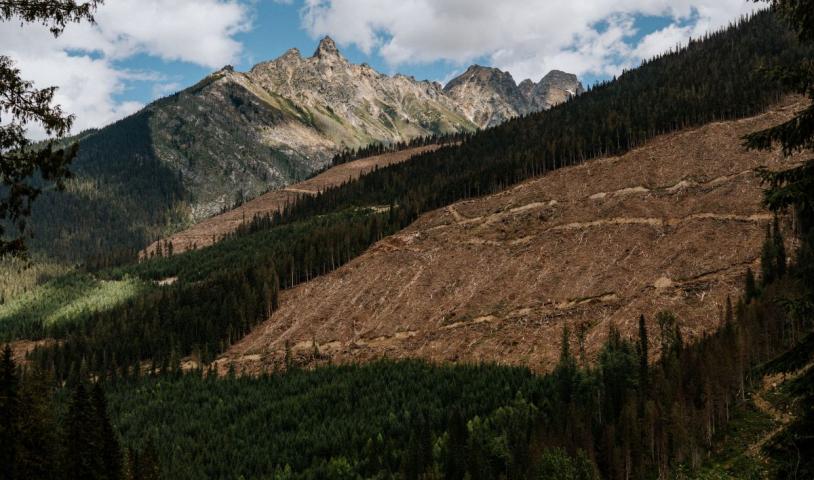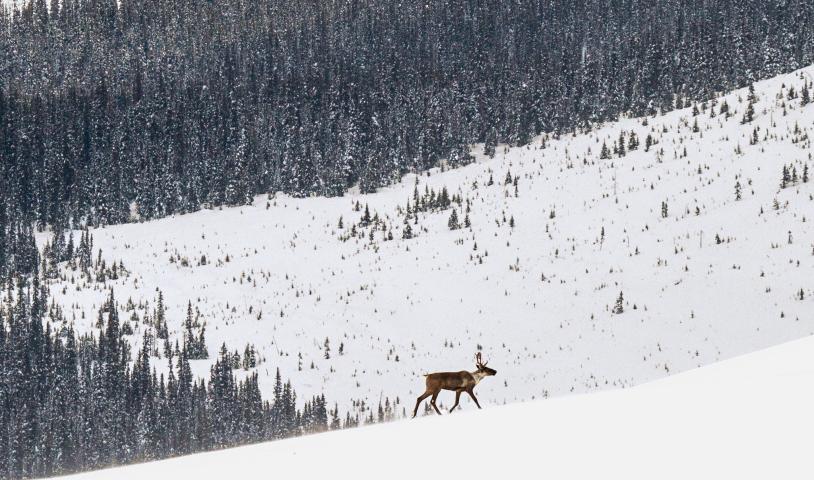Green groups commend feds for Pacific humpback recovery strategy
Tuesday, October 29, 2013
Strategy will offer meaningful protection of whales’ west coast habitat
FOR IMMEDIATE RELEASE: October 29, 2013
VANCOUVER — After a nearly five-year delay, environmental groups are commending the federal government for stepping up and making a legally-binding commitment to protect threatened humpback whales on Canada’s west coast.
The federal government published its final recovery strategy for the North Pacific population of humpback whales earlier this week. The document legally identifies the whales’ critical habitat, and the activities that are likely to harm that habitat including vessel traffic, toxic spills, overfishing, seismic exploration, sonar and pile driving. The whales’ critical habitat areas are in the path of a variety of development proposals, including the proposed tanker route for Enbridge’s Northern Gateway pipeline.
“This recovery strategy gives the federal government a scientific prescription for addressing threats to the recovery of Pacific humpbacks, which is especially important in light of pressure to increase tanker activity on the west coast,” said Susan Pinkus, senior scientist with Ecojustice.
The Pacific humpback whale critical habitat identified in this recovery strategy must now, by law, be protected no later than April 2014.
“We are pleased that this recovery strategy makes clear that increased vessel traffic threatens the critical habitat of this iconic marine species,” said Scott Wallace, senior research scientist with the David Suzuki Foundation. “In addition to the significant threat to humpbacks from tanker traffic, the recovery strategy should limit the effects of fishing, tourism, forestry, seismic exploration and other activities that disturb the whales and their habitat.”
The Pacific humpback is one of four species at issue in an ongoing lawsuit, launched last fall. The case, brought by Ecojustice on behalf of five other environmental groups, alleges that the federal government’s delay in producing recovery strategies for at-risk species unlawfully denies these species crucial habitat protection and undermines the effectiveness of environmental reviews for projects like the Northern Gateway pipeline. The Nechako White Sturgeon, Marbled Murrelet and Southern Mountain Caribou are also at issue in the lawsuit, which will be heard in early January.
“The long overdue release of this final recovery strategy is certainly a reassuring step forward,” said Lara Tessaro Ecojustice staff lawyer. “However, it does not address the damage caused by the federal government’s continued and ongoing delays in producing recovery strategies, particularly those for species at high risk from resource development.”
The Species at Risk Act requires that recovery strategies for at-risk species be created within certain timeframes, to ensure timely action towards their recovery. As of September 2013, 175 final recovery strategies for threatened or endangered species were past their legal due date.
For more information, please contact:
Susan Pinkus, senior scientist | Ecojustice
604.537.6407 (c)
Lara Tessaro, staff lawyer | Ecojustice
647.462.1834 (c)
Scott Wallace, senior research scientist | David Suzuki Foundation
778.558.3984
Gwen Barlee, policy director | Wilderness Committee
604.202.0322
Caitlyn Vernon, coastal campaigner | Sierra Club BC
250.896.3500
Photo: Pacific Humpback Whale breaches off Canada's west coast.





